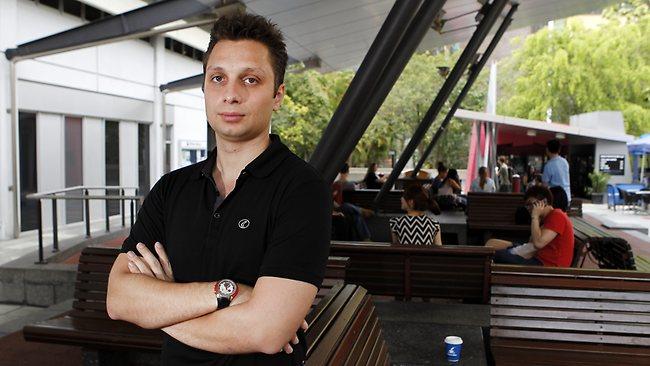Sanctions impoverish students from Iran
IRANIAN students in Australia cannot support themselves and pay their university fees as sanctions choke access to their funds.

IRANIAN students in Australia are fast running out of money to support themselves and pay their university fees as sanctions choke access to their funds and a plummeting Iranian rial makes it unaffordable for their families to support them.
The rial has collapsed under the weight of sanctions that have hit Iran's oil exports and banking sectors. Since March the rial has plummeted 58 per cent against the Australian dollar. For students in their third year of study here, the effective cost of living and tuition has jumped by more than five times.
Students are now cutting their study loads or deferring to free up time to work to pay off their debts. But their uncertain future means many find it difficult to get even menial jobs. And those who do are often exploited by employers paying below the minimum wage of $15.96 an hour.
The Council of International Students Australia is calling on the government to intervene to support these students, arguing it has a duty of care to those being hit by sanctions through no fault of their own.
"The Australian government is part of the sanctions and they have a duty of care to these students who are being impacted by the government's actions," CISA welfare officer Heather Richards said.
Earlier this year, the federal government gave universities more flexibility to allow Iranian students to defer their studies without restrictions on work hours so they can better sustain themselves. Students are normally limited to working no more than 40 hours a fortnight.
But many students are reluctant to drag out their studies and risk having their visas expire when they are unlikely to have the financial resources to qualify for a renewal. Some have already given up and gone home, having wasted thousands of dollars on tuition fees.
There are about 1400 Iranian international students in Australia, but most are on postgraduate scholarships with universities. The number facing severe hardship may only be around 300, according to Mehdi Beiki, head of the student Persian Club at Queensland University of Technology. "These are ordinary people, they aren't politicians. They are just students who have paid for half or more of their study and they are now in trouble," Mr Beiki said.
He said students just want the chance to complete their degrees and then pay back the universities while working here as graduates. Graduates from next year can apply for a two-year post-study work visa.
CISA surveys since March show a worsening financial and mental situation among Iranian students. Of 244 respondents to the survey released this month, 90 per cent said they were struggling to get money out of Iran, up from 68 per cent in March. Some 88 per cent said they were in financial difficulty and the majority of these said the stress was hurting their studies and their mental health. Of those students, about a third had a job.


